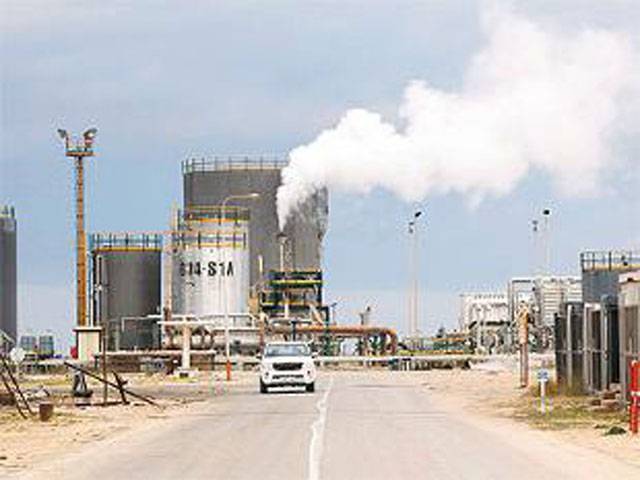TRIPOLI - Libya is suffering a profound economic and political crisis, running out of cash because autonomy-seekers are blocking key oil exports, while a movement is afoot in congress to unseat the fragile government.
The oil-rich North African country has been shaken by political instability ever since long-time dictator Moamer Kadhafi was unseated and killed in late 2011.
The government has failed to bring stability and security, with Libya’s many tribes flexing their muscles and militias who fought to overthrow Kadhafi refusing to give up their arms, instead carving out fiefdoms of their own.
The latest crisis erupted in July, when security guards at key oil terminals shut them down, accusing the authorities of corruption and demanding a more equitable distribution of oil revenues.
Production plunged to around 250,000 barrels per day from 1.5 million bpd, and the economy ministry estimates the treasury has lost more than $9 billion (6.6 billion euros) in revenue.
That is a heavy blow to a country that relies on hydrocarbon revenues for 96 percent of its gross domestic product.
Production has since recovered to 546,000 bpd, but the crisis has taken its toll.
“The situation is becoming more and more critical,” observed an executive with a foreign bank operating in Tripoli, who asked not to be identified. “The government risks having to resort to borrowing to pay its bills.”
The government has denied any corruption over its oil sales through the National Oil Co and has, in turn, blamed the protesters for seeking to line their own pockets.
More than two years after Kadhafi’s ouster, Libya has still not managed to adopt a new constitution, which would include a decision on how the country is to be administered geographically.
With independence, which followed World War II, Libya was divided into three regions — Cyrenaica in the east, Fezzan in the southwest and Tripolitania in the north. Those regions were done away with prior to Kadhafi seizing power in 1969, but they were not forgotten.
The situation was exacerbated in August, when campaigners for autonomy in Cyrenaica set up a regional “government”, which later received the backing of the striking guards.
Friday, April 19, 2024
Libya oil crisis exacerbated by push for autonomy

Caption: Libya oil crisis exacerbated by push for autonomy
US vetoes Palestine’s bid for full UN membership
8:27 AM | April 19, 2024
20pc Discos employees involved in power theft: Minister
April 19, 2024
Five govt officials shot dead in D I Khan
April 19, 2024
Parvez Elahi’s indictment delayed again in two cases
April 19, 2024
Hepatitis Challenge
April 18, 2024
IMF Predictions
April 18, 2024
Wheat War
April 18, 2024
Rail Revival
April 17, 2024
Addressing Climate Change
April 17, 2024
Justice denied
April 18, 2024
AI dilemmas unveiled
April 18, 2024
Tax tangle
April 18, 2024
Workforce inequality
April 17, 2024
New partnerships
April 17, 2024
ePaper - Nawaiwaqt
Advertisement
Nawaiwaqt Group | Copyright © 2024





